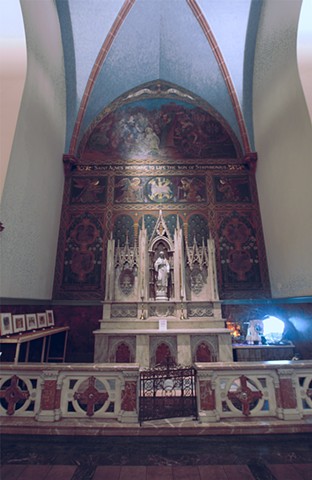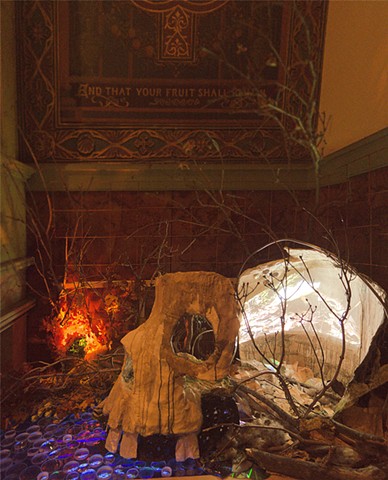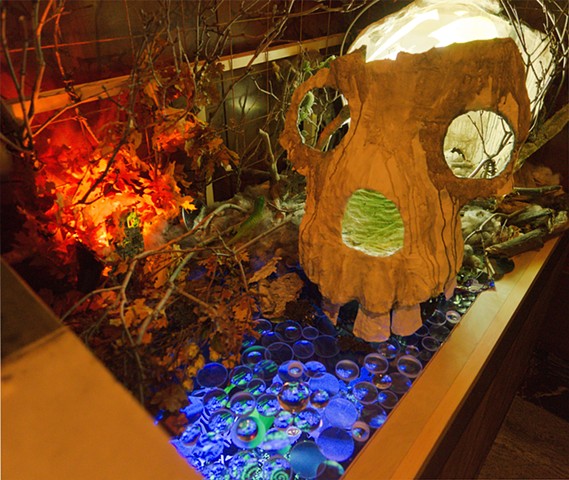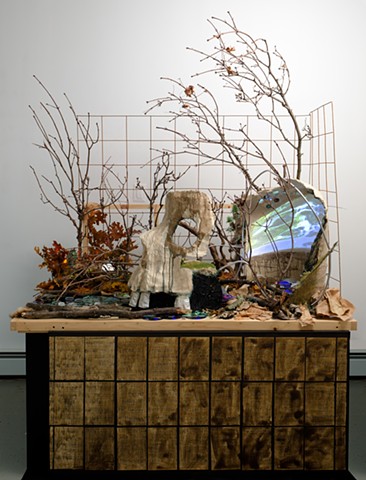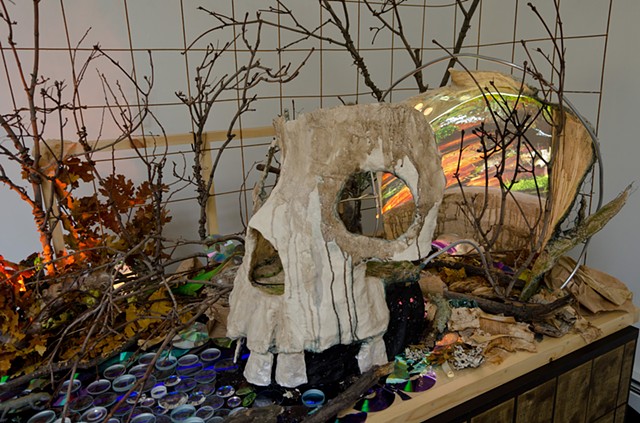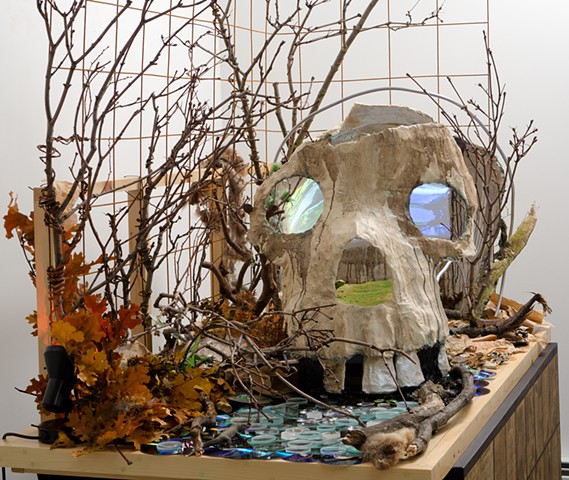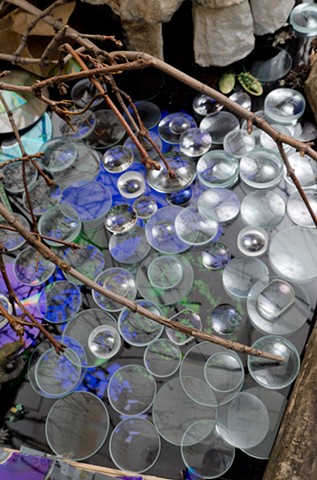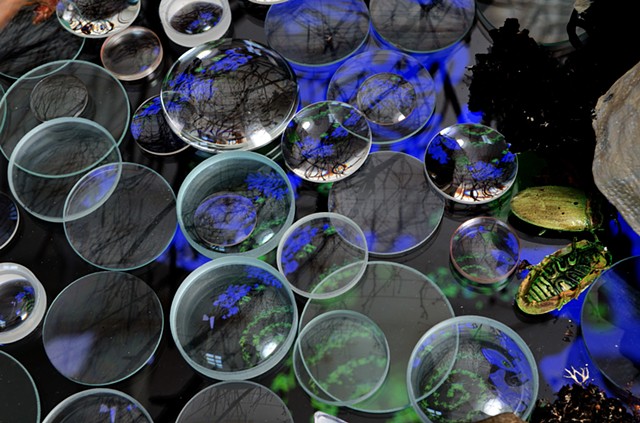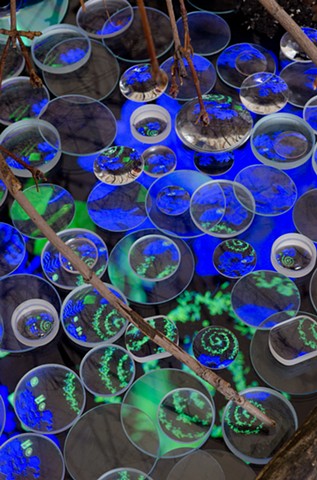Mnemosyne
ARTIST STATEMENT FOR MNEMOSYNE
Mnemosyne (ni-mos’-ih-nee) the installation is inspired by contemporary science of the mind, a coming together of neuroscience, molecular biology, and cognitive psychology which seeks to elucidate how our brains work.
Mnemosyne the goddess is the ancient Greek goddess of memory, the inventress of language, mother of the Muses, and a goddess of time; she is a perfect mishmash of the mental attributes that give us language and the arts, features that most distinguish
us humans from other animals.
The installation is a tongue in cheek memento mori, a nod to artistic tradition and to the often dark emotions and sense of mortality that lead to poetry. The skull is disembodied as a comic wink to abstract symbolic thought, which some people think is uniquely human. Our minds are so vivid to us that we sometimes forget we are bodies,
animals subject to natural laws.
The under-table is a wink at abstract thought, language, mathematics, digital memory, anxiety, and fear of death. As you move your head, the scene moves and changes, refracted by the multitude of lenses on top of the glass tabletop.
The video imagery represents jumbled raw data as it hits the eye. We don’t consciously see the vast majority of what enters our eyes-- we see what we expect to see, and our perception is also defined by our long evolutionary past-- we see movement best, we unconsciously complete outlines, our brains devote much space to face recognition,
characteristics related to our origins as social prey animals. We learn facts by tedious repetition, but images and scenes when emotionally resonant effortlessly enter consciousness and memory, becoming part of our sense of self. Memory itself depends
on the amygdala, an ancient processing center of the emotions and of memory.
We are discovering how mutable and creative are all steps of our mental lives. Vision, perception, and memory are all creative acts-- none are faithful representations of external reality. We are truly not cameras or computers-- we invent, we lie, we tell stories, often unconsciously. Every time we remember, we re-create the chemical bonds in our brains wherein lie memories, and the act of remembering is deeply connected to our primitive emotional centers. Memories do not reside in a crystalline Truth Center, they are blood and emotion. We are not pure abstract thinkers.
Memory and its child, History (Clio, an often forgotten Muse) are necessary to a sense of both past and future. Science does give us many tools; we can predict future problems based on an understanding of the past. But on the whole we are not fully rational. By default we are not much different from our cats and dogs, and as influenced
by social pressure as a troop of chimps. But, ever flexible, we COULD certainly improve our understanding by knowing our weaknesses.
